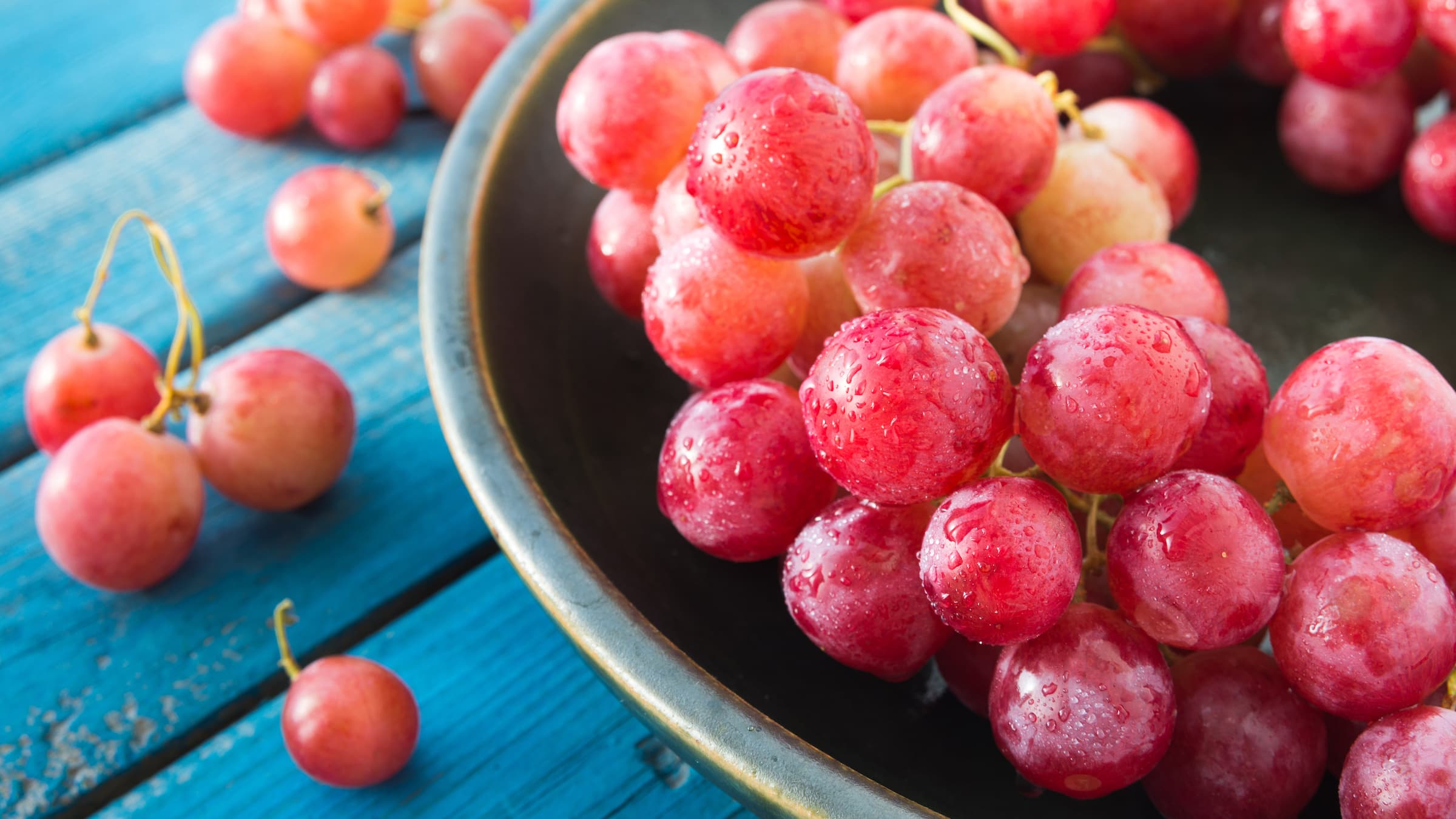If you’re focused on making healthier food choices and losing weight in a sustainable way, chicken breast can be a smart addition to your diet. This lean, protein-rich food supports muscle maintenance, keeps you full longer, and fits seamlessly into a variety of healthy eating plans. In this comprehensive guide, we’ll explore the nutritional benefits of chicken breast, its compatibility with popular diets, and the science behind why it’s a go-to choice for those aiming to lose weight without sacrificing nourishment or satisfaction.
✅ Quick answer
Yes, chicken breast can help with weight loss because:
- High protein – It promotes muscle preservation and boosts satiety.
- Low in fat & carbs – Fewer calories mean easier calorie control.
- Versatile preparation – It adapts to various healthy cooking methods, keeping meals exciting.
🥗 Macronutrients in chicken breast (Per 100g/about 3.5 ounces)
| Nutrient | Amount (per 100g) | % RDA* |
|---|---|---|
| Calories | 165 kcal | 8% |
| Protein | 31 g | 62% |
| Total carbohydrates | 0 g | 0% |
| Dietary fiber | 0 g | 0% |
| Sugars | 0 g | — |
| Total fat | 3.6 g | 5% |
| Saturated fat | 1 g | 5% |
| Monounsaturated fat | 1.2 g | — (no official DV) |
| Polyunsaturated fat | 0.7 g | — (no official DV) |
| Omega-3 | 0.03 g | — (no official DV) |
| Omega-6 | 0.6 g | — (no official DV) |
(Data for cooked, boneless, skinless chicken breast from USDA and Nutritionix)
Summary:
Chicken breast is a low-calorie, lean source of high-quality protein with minimal fats and zero carbohydrates. This macronutrient profile makes it an excellent option for those aiming to reduce calories while maintaining muscle mass.
*Recommended dietary allowance (RDA) is defined as the average daily amount of nutrients that are needed to meet the requirements of nearly all healthy people in a specific group. (Based on FDA’s RDVs.)
💊 Vitamins & minerals in chicken breast (micronutrients)
| Vitamin/mineral | Amount (per 100g) | % RDA* |
|---|---|---|
| Vitamin A | 5 µg (micrograms) | 1% (RDA ≈ 900 µg) |
| Vitamin C | 0 mg | 0% |
| Vitamin B6 | 0.5 mg | 38% (RDA ≈ 1.3 mg) |
| Vitamin B12 | 0.3 µg | 12% (RDA ≈ 2.4 µg) |
| Potassium | 256 mg | 5% (RDA ≈ 4700 mg) |
| Magnesium | 29 mg | 7% (RDA ≈ 400 mg) |
| Zinc | 1 mg | 9% (RDA ≈ 11 mg) |
| Selenium | 30 µg | 55% (RDA ≈ 55 µg) |
| Phosphorus | 220 mg | 22% (RDA ≈ 1000 mg) |
| Niacin (B3) | 13.7 mg | 68% (RDA ≈ 20 mg) |
(Data from USDA FoodData Central)
Summary: Chicken breast offers a robust micronutrient profile despite its low-calorie count. It’s especially rich in B vitamins (essential for energy metabolism), selenium (an antioxidant mineral), and phosphorus, making it a nutrient-dense food that supports overall health.
🔍 Nutrient breakdown
- Glycemic index (GI) of chicken breast
✔️ Glycemic index: 0 (Low)
💡 Tip: Low-GI foods help maintain stable blood sugar and control hunger. - Is chicken breast high in protein?
✔️ Yes – It contains 31 g of protein per 100g.
🔹 Better protein alternatives: Turkey breast | salmon - Is chicken breast high in fiber?
✔️ No – It provides 0 g of fiber per 100g.
💡 Tip: Combine with fiber-rich vegetables or whole grains to support digestion. - Is chicken breast low in carbs?
✔️ Yes – It has 0 g of carbohydrates per 100g.
💡 Tip: Low-carb foods can help stabilize blood sugar and reduce energy crashes. - Is chicken breast gluten-free?
✔️ Yes – Chicken breast is naturally gluten-free when unbreaded. - Is chicken breast good for fat loss?
✔️ Yes – Due to its high-protein, low-calorie content, chicken breast is very helpful for fat loss.
🍽️ Diet compatibility: Which popular diets include chicken breast?
| Diet type | ✅ Yes / ❌ no | Explanation |
|---|---|---|
| Keto | ✅ Yes | Zero carbs and high protein make it ideal; add healthy fats to meet keto macros. |
| Paleo | ✅ Yes | Lean, unprocessed meat fits perfectly into paleo eating principles. |
| Mediterranean | ✅ Yes | Lean protein is favored over red meat, especially when paired with vegetables and healthy fats. |
| Vegan | ❌ No | Excludes all animal products. |
| Gluten-free | ✅ Yes | Naturally gluten-free when consumed plain, without breading or gluten-containing sauces. |
Summary:
Chicken breast is highly versatile and fits seamlessly into low-carb, paleo, and Mediterranean diets. Its natural gluten-free status makes it a safe choice for those with gluten sensitivities. It’s not suitable for vegan diets.
🌟 Additional health benefits of chicken breast
- Metabolic health:
- Boosts metabolism? Yes – High protein increases the thermic effect of food.
- Improves insulin sensitivity? Yes – Stabilizes blood sugar and aids in muscle preservation.
- Effect on fat storage? Helps prevent fat gain – Supports lean muscle mass, which promotes a healthy metabolic rate.
- Boosts metabolism? Yes – High protein increases the thermic effect of food.
- Cholesterol impact:
- Lowers LDL (Bad) cholesterol? Yes – Substituting high-fat meats with lean chicken can reduce LDL levels.
- Raises HDL (good) cholesterol? Yes – Lean proteins help support a balanced cholesterol profile.
- Overall impact on heart health: Positive – Enhances heart health when replacing red or processed meats.
💡 Tip: Combine with fiber-rich and healthy fat foods to further balance cholesterol.
- Lowers LDL (Bad) cholesterol? Yes – Substituting high-fat meats with lean chicken can reduce LDL levels.
- Antioxidants:
✔️ No – Chicken breast isn’t high in antioxidants, but it does provide selenium, which helps your body produce antioxidant enzymes. - Gut health & digestion:
✔️ Digestion support: Yes – Easily digestible; pair with fiber-rich foods to support gut health.
✔️ High in fiber? No – Lacks fiber, so include vegetables or whole grains. - Can I eat chicken breast for a calorie deficit?
✔️ Yes – Chicken breast is low in calories yet rich in high-quality protein, making it an ideal choice for maintaining a calorie deficit while preserving muscle mass.
💡 Tip: Combine chicken breast with plenty of fiber-rich vegetables and whole grains to ensure satiety and balanced nutrition while reducing overall calorie intake. - Satiety & cravings:
✔️ Helps you feel satiated: Yes – It’s high protein content helps curb hunger.
✔️ Satiety level: High
✔️ Helps with nighttime cravings: Yes – A lean protein snack can help prevent late-night snacking.
💡 Tip: Pair with vegetables or a light whole-grain for added fullness. - Inflammation:
✔️ Helps reduce inflammation? Possibly – Replacing processed meats with lean chicken may lower inflammatory markers.
💡 Tip: Complement with anti-inflammatory foods like leafy greens and berries. - Brain health:
✔️ Beneficial for brain health? Yes – Provides B vitamins and amino acids crucial for cognitive function.
💡 Tip: Combine with omega-3-rich foods for enhanced brain support. - Skin & hair health:
✔️ Can improve skin and hair health? Yes – High-quality protein supports collagen production and hair strength.
💡 Tip: Include vitamin C-rich fruits to aid collagen synthesis. - Hormonal balance:
✔️ Can help balance hormones? Yes – Adequate protein and selenium support thyroid function and hormonal balance.
💡 Tip: Maintain a balanced diet with healthy fats for optimal hormone regulation.
🍽️ Best ways to eat chicken breast for weight loss
- ✅ Grilled, baked, air fried:
Use minimal oil to preserve its lean protein content and enhance flavor with herbs and spices. - ✅ Poached or boiled:
This fat-free cooking method makes chicken versatile for salads, soups, or shredded dishes. - ❌ Avoid deep-frying:
Breaded or deep-fried chicken adds unnecessary calories and unhealthy fats, counteracting weight loss benefits.
🚀 Weight loss benefits
- ✅ High satiety:
Its high protein content keeps you full and reduces overall calorie intake. - ✅ Muscle preservation:
Supports lean muscle mass during a calorie deficit, which is crucial for maintaining metabolic rate. - ✅ Low-calorie & versatile:
Delivers essential nutrients without excessive calories and adapts to a wide range of healthy recipes.
⚠️ Potential downsides
- ⚠️ Lacks fiber:
With 0 g of fiber per 100g, it should be paired with fiber-rich foods to support digestion. - ⚠️ Can become monotonous:
Relying solely on chicken breast may lead to diet fatigue; variety is essential for long-term adherence.
🍏 Best alternatives & comparisons (Per 100g)
| Food | Calories | Carbs | Fiber |
|---|---|---|---|
| Chicken breast | 165 kcal | 0 g | 0 g |
| Turkey breast | 150 kcal | 0 g | 0 g |
| Firm tofu | 144 kcal | 3 g | 2 g |
| Salmon | 200 kcal | 0 g | 0 g |
| Egg whites | 52 kcal | 0.7 g | 0 g |
Summary:
Chicken breast stands out as a lean, high-protein option ideal for weight loss. For those seeking variety, turkey breast and egg whites offer similar benefits, while tofu adds fiber and plant-based nutrients. Salmon provides heart-healthy omega-3 fats in moderation.
🧠 Is chicken breast food for weight loss?
Losing weight while keeping your meals satisfying and nutritious isn’t always easy, but chicken breast makes it a little simpler. It’s lean, packed with high-quality protein, low in calories, and surprisingly versatile. Whether you’re trying to preserve muscle during a calorie deficit or just looking for a filling option that won’t weigh you down, chicken breast fits the bill.
Real results with a personalized weight loss program
Take the quiz!

Pair it with fiber-rich veggies and healthy fats to build balanced, flavorful meals that support your goals without getting boring. Grilled, baked, or poached—it’s easy to keep things fresh. When you make smart, satisfying choices like this part of your routine, healthy eating feels a lot more doable (and a lot less like a diet).
📖 Scientific evidence
- High-protein diets that included chicken preserved muscle and reduced fat [Journal of the American College of Nutrition, 2007]
Postmenopausal women on a calorie-restricted, chicken-based diet lost more fat and preserved more muscle than those on a higher-carb plan. - Chicken and Its role in heart and metabolic health [Nutrients, 2023]
A review of current evidence suggests that lean, unprocessed chicken, like skinless chicken breast, can support healthy weight management and may have positive effects on heart health when part of a balanced diet. - Lean meats like chicken breast support fat loss when calories are controlled [Nutrients, 2014]
A study found that chicken and other lean meats supported similar levels of weight and fat loss when calories were matched. - High-protein meats like chicken breast help you stay full [Appetite, 2011]
This study revealed that chicken, beef, and pork generated similar satiety responses, supporting chicken breast’s role in reducing hunger and aiding weight management.



